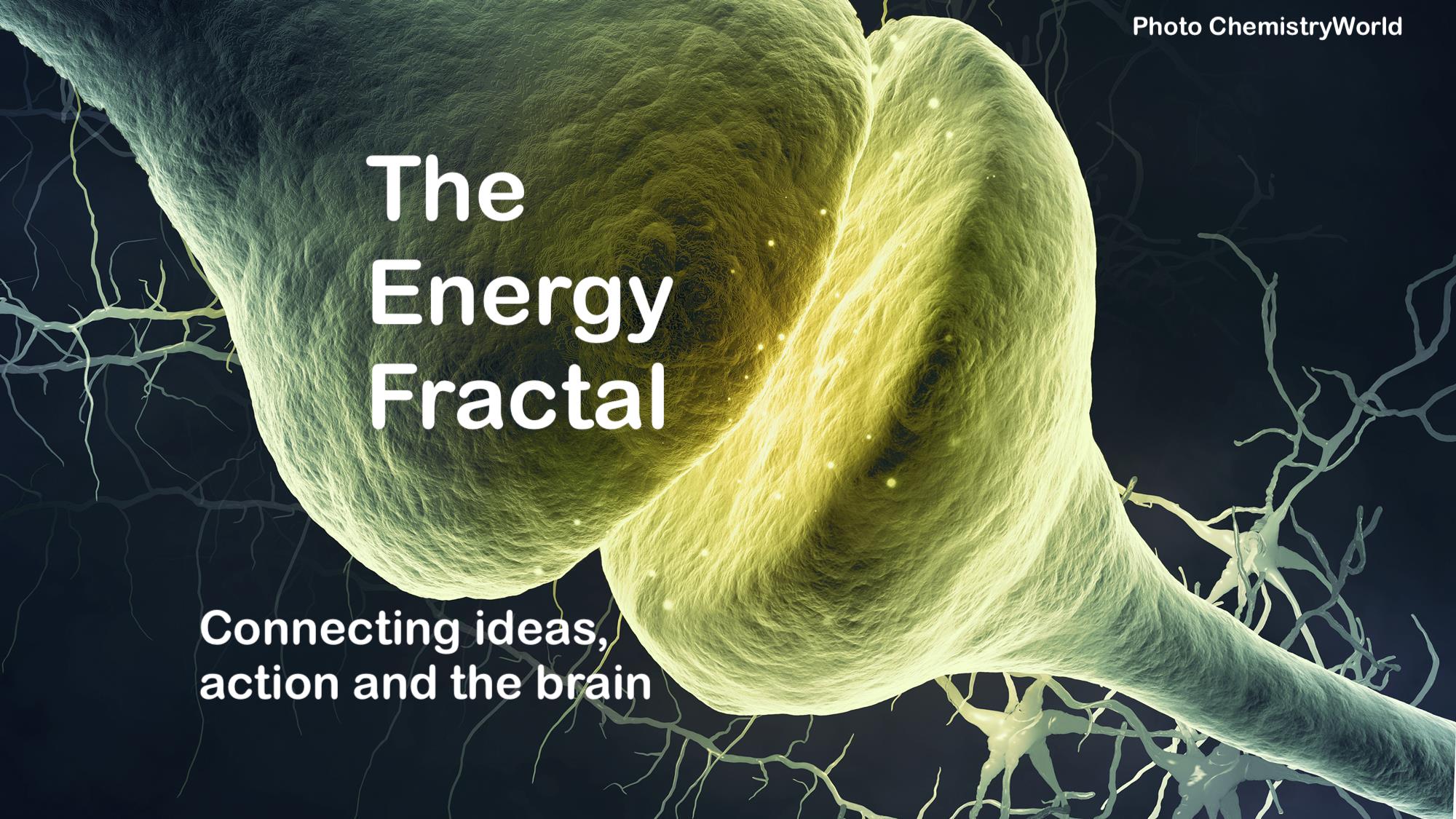The Art and Science of Changing Leadership and Team Behaviour
"Genius, in truth, means little more than the faculty of perceiving in an unhabitual way."
William James, father of modern psychology, and pioneer of connecting new actions to changes in the brain, to generate new behaviour.
The Energy Fractal. The customised evolutionary habit that transforms cultural DNA
William James, father of modern psychology, genius and brother of the writer Henry James, was a century ahead of his time.
He recognised that all of human activity is driven by unconscious habits.
He was the first to recognise that these habits are built into the neural networks of our brains.
And his real breakthrough?
He recognised that certain carefully designed new actions, with sustained repetition, WILL CHANGE THE PHYSICAL STRUCTURE OF THE BRAIN.
Specific new actions create new neuronal pathways through releasing neural transmitters - the electrochemical energy - needed to evolve the new networks.
Our brains contain about 200 billion neurons or brain cells. They can connect with each other in an almost infinite number of ways.
Our brains are the smartest machines we know of in the biological world. The challenge in organisations is to know how to use their incredible power to increase the performance of leaders and teams.
Our Leadership Blind Spot
Our greatest blind spot in our quest for understanding and developing great leaders is in confusing the imaginary world with the real world.
Our imaginary world is driven by our unique consciousness capability of thinking about the future. In this world we have no limits.
The real world however is about our action and relationship with society and the natural world.
Herein lies our blind spot. An example.
Everyday we read about concepts linked to leadership such as values, purpose, flexibility, agility, integrity, creativity, respect, culture and leadership itself.
All have one thing in common. None are real.
All of these factors live in our imaginary worlds. None exist in the real world. They are merely artefacts of our imaginary consciousness.
The real world is a world of action. It is a continuously evolving world of energy, movement and unpredictability. And it is in this world of action that we reflect and judge behaviours against our imaginary world of concepts such as values and culture.
Remember that every employee and customer will have a unique experience and equally unique imaginary box.
Concepts are imaginary. Action is real.
Therefore you cannot change imaginary concepts such as culture. What you can change is action and behaviour in the real world.
Introducing the Energy Fractal - the evolutionary behavioural gene
Background.
We introduced the concept and action linked to the Energy Fractal, as the tool to change behaviour, in 1995. We did this with the top 300 managers of a financial institution including the Executive Team and Board Members. Since then we have used this method, based on evolutionary science, with thousands of leaders in a range of industries and countries.
Defining the Energy Fractal.
The William James 'habit' that has the following characteristics.
The Energy Fractal is a new simple action that with disciplined repetition will have the following capability.
- Carefully designed and customised, will have the power to change behaviour and performance.
- Create new attitudes and behaviours. Linked to strategic objectives.
- Act as an evolutionary replicator. It drives evolution in line with the Universal Evolutionary Algorithm.
- Generate new and higher levels of energy and performance.
- The capacity to be an effective neuroplastic vehicle. That is, a vehicle that will have the ability to change individuals' neuronal pathways, thus having the potential to modify both behaviour and impact of both leaders and teams.
- The power to impact organisations at both a first order and second order. Thus changing the organisational DNA.
- A most powerful coaching and development tool. With a proven track record.
Practical Application of the Energy Fractal
The greatest challenge facing organisations today is surely knowing how to change behaviour. It is inexcusable to give individuals feedback that they must be more flexible or better communicators. We need to put a stop to the daily avalanche of leadership platitudes. Without a scientifically proven method to both measure current behaviour and change current behaviour.
If you want a leader, say, to become a better communicator, don't just state this. It is pointless. Rather explain how the current level of communication is being measured. And provide the customised new actions that with repetition, will change neuronal pathways, and most importantly will change actions and behaviour.
Test your Organisation's Behaviour Change Capability
If we are smart enough to put a man on the moon, create the internet, smartphones and electric vehicles, we should be smart enough to know how to change behaviour. Using the laws of science, in preference to much of the cult based witchcraft on view today.
How smart is your organisation?
Ask anyone who claims to know something about performance management. Your direct manager. Your HR manager. Your organisational development specialists. And if you are studying at a decent business school, your professor.
"As a specialist in your field how do you change behaviour? What is your method? What is your science that underpins your method? Where is your research? Can you validate your method? Can you measure the impact?"
The answer will tell you everything you need to know about the relative intelligence of your company.
Comments
By accepting you will be accessing a service provided by a third-party external to https://quanta.consulting/

